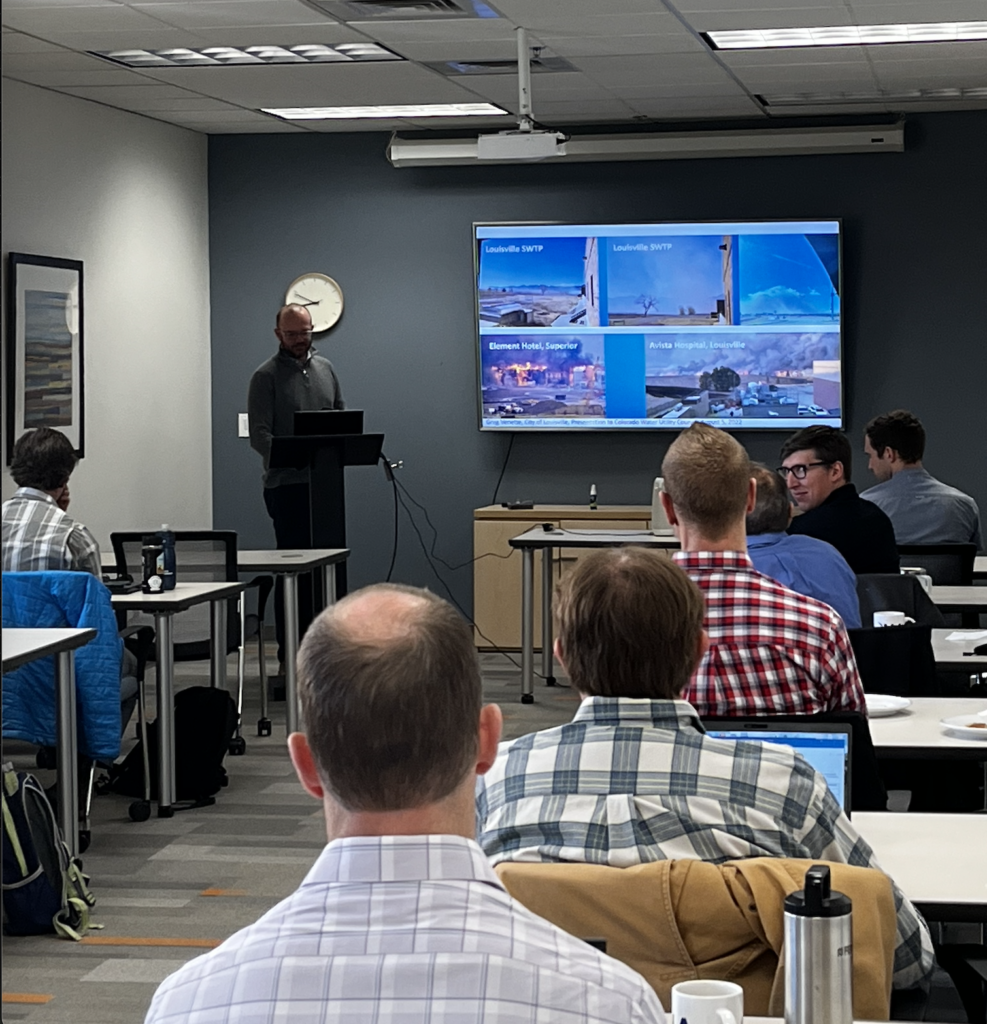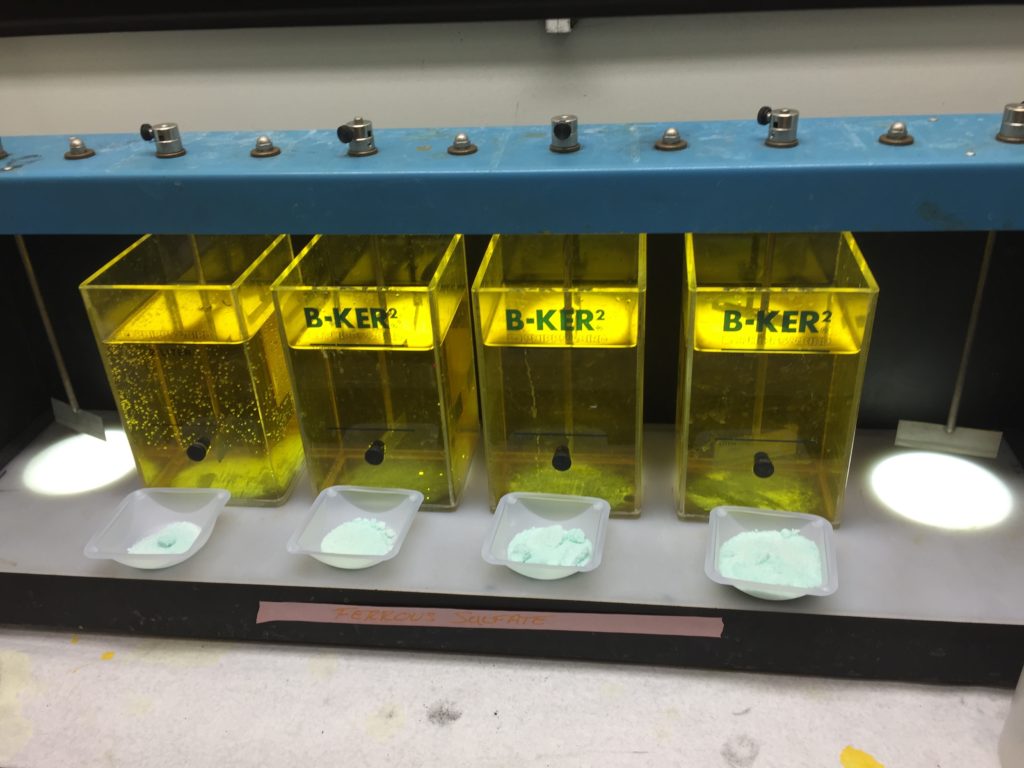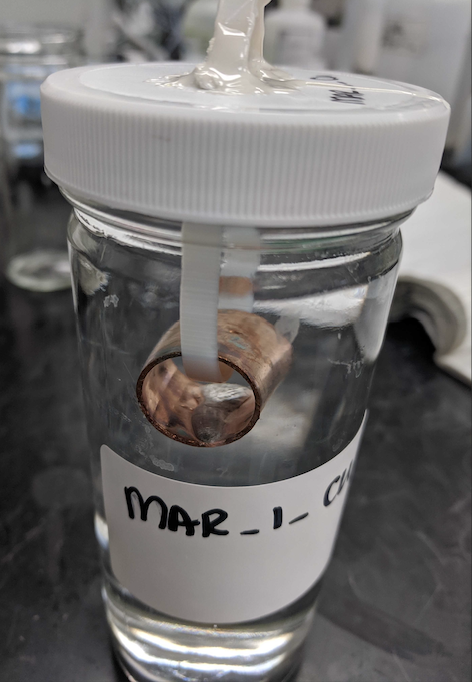
Water. Data. Policy.
Knowledge out of Darkness
Drinking Water Utility Preparedness for Wild-Urban Interface Fires
Drinking water utility lessons learned from the Marshall Fire
The Corona team recently hosted a workshop in the Louisville, CO office on the heroic efforts taken by the utility crews from the Town of Superior and the City of Louisville. Presentations were given on the actions the utilities took during the fire, the steps taken towards recovery, and lessons learned.

California's Proposed Hexavalent Chromium MCL
Click here for more information on California's proposed chromium-6 MCL and treatment options
California’s State Water Resources Control Board (SWRCB) recently proposed a draft maximum contaminant level (MCL) for hexavalent chromium (chromium-6) in drinking water at 10 µg/L. The chromium-6 MCL has a long history in California and is expected to impact many drinking water utilities.
Lead and Copper Rule Revision (LCRR)
Denver Water Receives EPA Approval for an Alternative Treatment Technique for National Primary Drinking Water Lead and Copper Regulations
Corona Environmental Consulting assisted Denver Water in obtaining this first-of-its-kind EPA approved variance by analyzing data, creating models, and performing experimental research that substantiated Denver Water’s approach to achieving Lead and Copper Rule compliance.
Denver Water began implementing the Lead Reduction Program (LRP) in 2020. The LRP is a lead management strategy that directly addresses the source of the lead with accelerated lead service line replacements, while simultaneously avoiding the long-term watershed impacts of orthophosphate addition. To address lead concerns while the lead service lines are being replaced, Denver Water is providing filters certified to remove lead to all customers with known or suspected lead service lines. To address long-term control of lead from other sources, Denver Water is increasing pH and alkalinity. The Corona team modeled the system-wide lead concentrations of LRP conditions versus orthophosphate (designated as Optimal Corrosion Control Treatment) to demonstrate equivalency between the approaches. The Equivalency Model will be used in the future to determine regulatory compliance and the success of the LRP. CEC also assisted Denver Water in experimental design and analysis of their lead pilot rack, coupon testing, and lead filter testing. Additionally, CEC developed a data-driven model to help identify lead service lines in the system and estimate the total number of lead service lines, as well as many other Tech Memos to support the variance.
For more information, visit Denver Water’s LRPP information site.
Desktop Corrosion Study for Mohawk Valley Water Authority
Corona performed a desktop corrosion control study for Mohawk Valley Water Authority (MVWA) in New York. Our team reviewed water quality and operational data from the MVWA water treatment plant and the distribution system and made recommendations to optimize corrosion control treatment to lower lead levels and achieve stable water quality throughout the distribution system.
MVWA is currently in compliance with the lead and copper rule (LCR). The most recent lead monitoring performed in 2018 in MVWA’s system resulted in the 90th percentile lead concentration of 13 µg/L, lower than the USEPA established lead action level (AL) of 15 µg/L. The USEPA released their Lead and Copper Rule Revisions (LCRR) in December 2020. The final revisions include several provisions and focus areas – one of which is strengthening treatment requirements. As part of this requirement, the USEPA established a new trigger level (TL) for lead at 10 µg/L. For systems currently performing corrosion control treatment, if the 90th percentile lead concentrations exceed the TL, the LCRR requires the systems to re-optimize their existing treatment. Based on the most recent 2018 lead results, MVWA would be required to re-optimize their existing corrosion control treatment. MVWA is required to complete another round of LCR compliance sampling in the summer of 2021, which will further inform current compliance status and need for optimization with respect to the final LCR requirements.


You are not alone in finding solutions to water treatment and utility management challenges. Reach out to us today.
Our experts are nationally known for finding solutions to some of the water sector’s greatest challenges.
